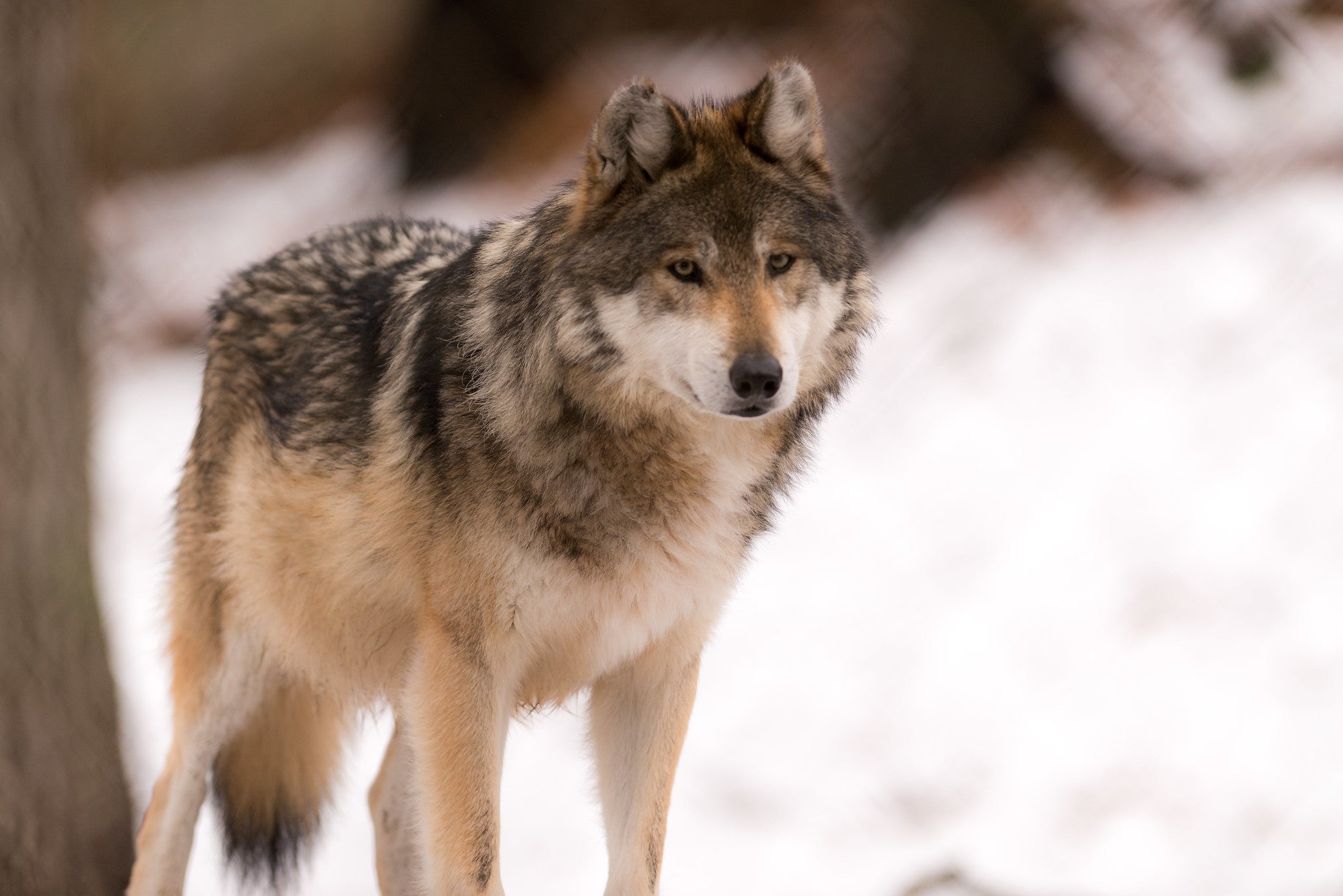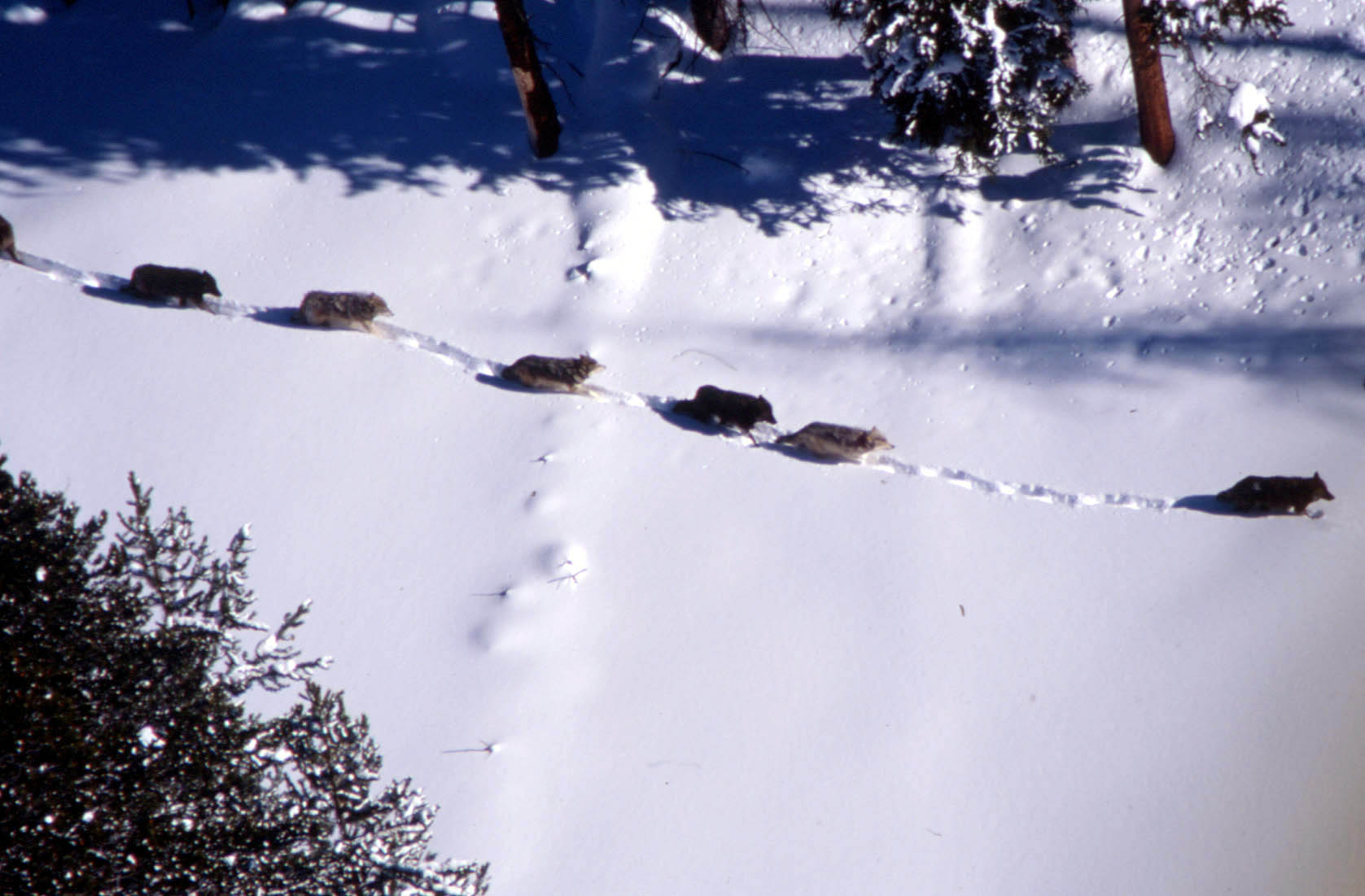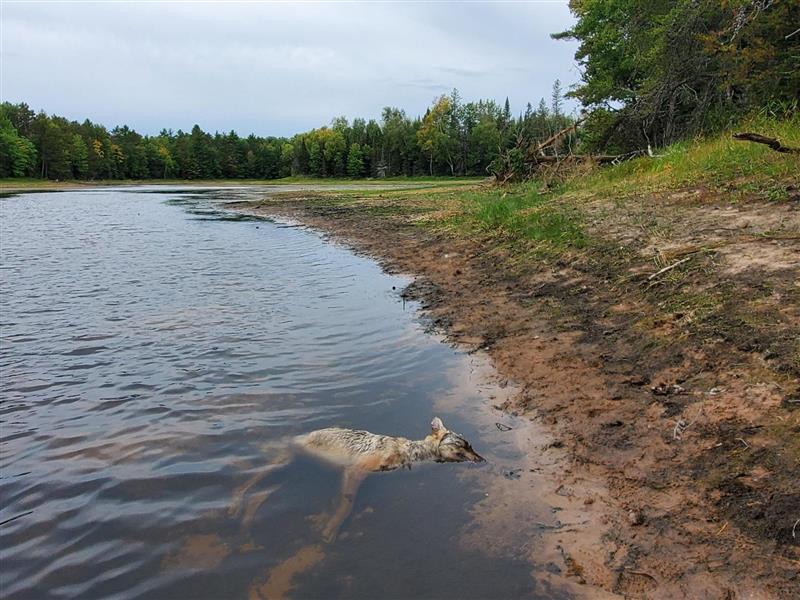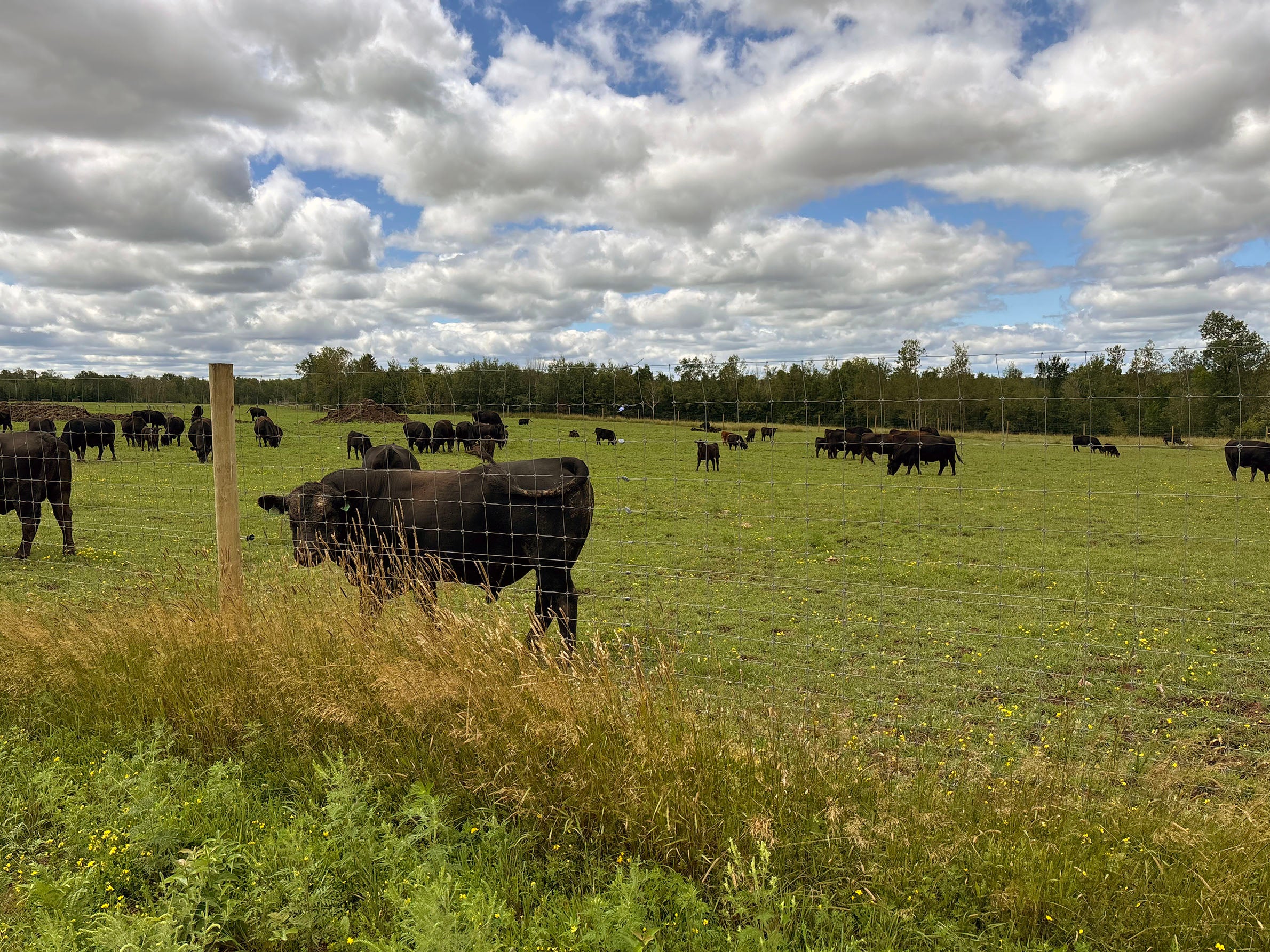The Wisconsin Senate has advanced a Republican-authored bill that requires the state Department of Natural Resources to set a statewide population goal for wolves.
Republicans in the Senate voted 22-10 Tuesday in favor of the bill, with all Democrats voting against. It now heads to the Assembly.
The DNR nixed a statewide population goal when it released the first major update of its wolf management plan in more than 20 years last November. Following that, Republican lawmakers introduced a bill earlier this spring to force wildlife managers to set a population goal. The agency has since made changes to its plan that would seek to maintain the state’s population at levels between 800 and 1,200 wolves.
Stay informed on the latest news
Sign up for WPR’s email newsletter.
Last month at an event in Hayward, Democratic Gov. Tony Evers indicated he may veto the bill. He expressed support for the DNR’s position to refrain from setting a statewide population goal, saying it “seems like a reasonable place to be.”
The last wolf plan approved in 1999 and revised in 2007 set a population goal of 350 wolves. When it was first written, Wisconsin had roughly 250 wolves. Since then, DNR data shows the animal’s population has grown four times that number to nearly 1,000 wolves and appears to be stabilizing.
Sen. Mark Spreitzer, D-Beloit, said Tuesday that the bill takes the wrong approach. While he said it’s time to delist the wolf, Spreitzer argued partisan politics may threaten the DNR’s ability to regain state management of wolves. The animal is currently listed as an endangered species.
“If Republicans continue down this path, you will instead show the federal government that Wisconsin is a place where partisan politicians are interfering with decisions made by scientists and wildlife managers, and we can’t be trusted to manage our wolves,” Spreitzer said. “I don’t want that, and I don’t think you want that either.”
Spreitzer said the bill ties the hands of the DNR, and it puts in place “arbitrary” and “unscientific” numbers.
Sen. Rob Stafsholt, R-New Richmond, disputed that. Stafsholt, who co-authored the bill, said the legislation doesn’t set a numeric goal, leaving that up to state wildlife regulators. He said they crafted the bill to ensure Wisconsin can delist wolves as an endangered species.
“By going to a plan with no population goal, we are now making a change that we haven’t made before,” Stafsholt said. “So therefore, inconsistency, I believe, would reduce the chances of having them delisted on a permanent basis in Wisconsin.”
The animal has been repeatedly listed and delisted as an endangered species as hunters, farmers, animal rights groups and tribes have fought over the wolf’s status. A federal judge restored protections for the gray wolf last year. State law mandates a hunting season when the animal isn’t under federal protection.
GOP lawmakers, hunters and farmers want statewide population goal of 350 wolves
Last month, the DNR said its plan provides more flexibility in managing the animal. The current plan and its management goal were the subject of much debate before and after the 2021 wolf hunt. Following the animal’s delisting that year, hunters killed 218 wolves in under three days. They killed their share and the Ojibwe tribes’ portion of a 200-wolf quota.
Hunters, farmers and Republican lawmakers want the DNR to set a statewide population goal of 350 wolves in line with the existing plan. They have pointed to that goal as justification for higher wolf harvests to decrease their numbers and reduce conflicts with livestock and dogs.
George Meyer recently spoke on behalf of the Wisconsin Wildlife Federation in support of the bill. The group’s former executive director told WPR on Tuesday it’s important to have a number.
“There just is not confidence in the management of the wolf population without some kind of target, or at least a range, that people can assess what impacts are being had because of the animal,” Meyer said, noting the agency’s plan refers to its range as guidance rather than a firm goal.
DNR data shows a tiny fraction of the state’s more than 64,000 farms have been affected by wolf depredations. According to the agency, the DNR had received 31 verified complaints of wolf depredations by the end of July this year, affecting 18 producers. The Milwaukee Journal Sentinel reported Wisconsin saw the lowest number of farms with wolf conflicts in 15 years, according to most recent DNR monitoring data.
A 2022 survey by the DNR shows most Wisconsin households that responded support a population larger than 350 wolves, including in areas where people live among wolves.
Tribes, wolf advocates and conservation groups have criticized the existing wolf management plan as vastly outdated and not grounded in science. They argue the goal of 350 wolves was never intended to be a cap on the state’s wolf population.
Megan Nicholson, Wisconsin State Director for the Humane Society of the United States, said it’s unfortunate the Legislature is dictating the DNR’s work.
“I believe that scientists know better, know more about population management — more than most of the people in the Legislature,” Nicholson said. “But it doesn’t seem to be the case when it comes to wolves.”
Senate fired 4 NRB members appointed by Evers
The Natural Resources Board is set to take up the DNR’s wolf management plan at its Oct. 25 meeting, despite the Senate’s firing of four of Evers’ appointees to the board on Tuesday.
Republican senators rejected confirmation of Sandra Dee Naas, Dylan Jennings, Sharon Adams and Jim VandenBrook. Jason Schlender, executive administrator of the Great Lakes Indian Fish and Wildlife Commission, said the decision is disappointing.
“Dismissing these voices—that include an experienced Ojibwe treaty harvester with an extensive environmental background—sends a message that diversity is not valued and that qualifications do not matter,” Schlender said in a statement.
Evers immediately appointed four new members to ensure the board’s work isn’t “delayed or impeded” due to the Senate’s vote. The four new appointees include former DNR Deputy Secretary Todd Ambs, former DNR Environmental Loans Section Chief Robin Schmidt, former Democratic state Sen. Patty Schachtner, and former Menominee Indian Tribe Chair Doug Cox.
Meyer, a former DNR Secretary, said disagreements over one or two policy issues shouldn’t be a basis for disqualifying Evers’ appointees to the Natural Resources Board. He questioned whether the new appointees to the board would be in a position to vote on the wolf management plan by next week.
“I don’t think that’s an appropriate way to go either,” Meyer said. “The Natural Resources Board has been bounced around, and there’s politics being played on both sides. This has to stop.”
Wisconsin Public Radio, © Copyright 2025, Board of Regents of the University of Wisconsin System and Wisconsin Educational Communications Board.




